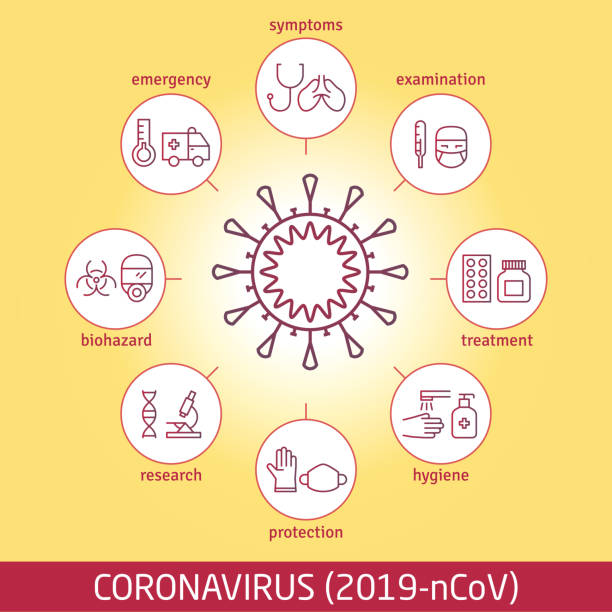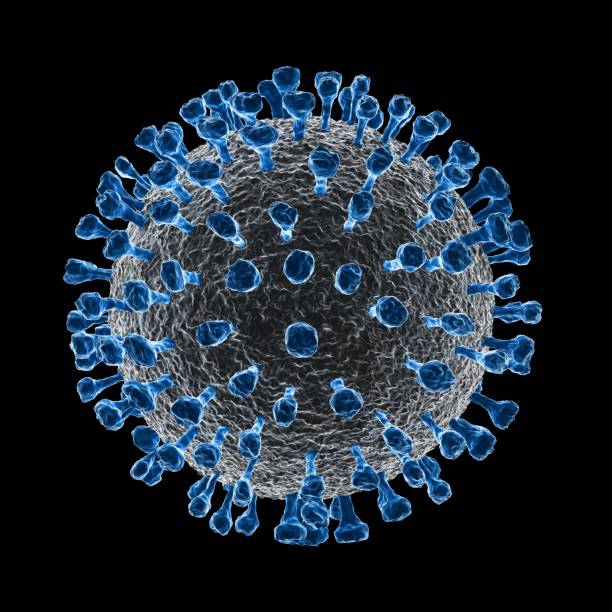Title: Coronavirus in Cats: Understanding Symptoms, Transmission, and Prevention
Introduction
Coronavirus, a term that has become synonymous with the global pandemic caused by SARS-CoV-2 in humans, also affects our feline companions. However, it's important to note that the coronavirus that affects cats is different from the one that affects humans. Feline coronavirus (FCoV) is a virus that primarily affects cats and can lead to a range of health issues. In this article, we will delve into the world of coronavirus in cats, exploring its symptoms, transmission, and prevention.
Understanding Feline Coronavirus
Feline coronavirus is a contagious virus that targets the gastrointestinal tract of cats. There are two primary forms of FCoV: feline enteric coronavirus (FECV) and feline infectious peritonitis virus (FIPV). FECV is more common and usually causes mild or asymptomatic infections. It mainly affects the intestinal lining, leading to mild digestive symptoms such as diarrhea. On the other hand, FIPV is a mutated form of FECV that can cause a severe and often fatal disease known as feline infectious peritonitis (FIP).
Symptoms of Feline Coronavirus
Cats infected with FECV might not display any symptoms at all or may have mild gastrointestinal issues. These can include intermittent diarrhea, occasional vomiting, and a decrease in appetite. Most cats can recover from these mild symptoms with proper care.
FIP is a more serious and complex condition. Cats with FIP can exhibit a wide range of symptoms, including fever, lethargy, weight loss, jaundice, fluid accumulation in the abdomen or chest, and neurological issues. The symptoms of FIP can vary greatly depending on the affected organs and systems.
Transmission of Feline Coronavirus
FCoV is primarily spread through the fecal-oral route, meaning that cats can become infected by coming into contact with the virus through contaminated feces or environments. Close living conditions, such as multi-cat households or shelters, can facilitate the spread of the virus. Cats that groom each other, share litter boxes, or engage in social interactions are at a higher risk of transmission.
Diagnosis and Treatment
Diagnosing FCoV can be challenging, as the symptoms are often non-specific and can resemble those of other feline diseases. Veterinarians typically use a combination of clinical symptoms, laboratory tests, and sometimes biopsies to reach a conclusive diagnosis. Unfortunately, there is no specific antiviral treatment for FCoV. Management usually involves supportive care to address the symptoms and improve the cat's overall condition.
Prevention of Feline Coronavirus
Maintaining a clean and hygienic environment is crucial in preventing the spread of FCoV. Regularly clean litter boxes, food and water bowls, and living spaces. This can significantly reduce the chances of virus transmission.
If you have a multi-cat household and one cat is diagnosed with FCoV, it's important to isolate the infected cat to prevent spreading the virus to other cats. Quarantine measures should be followed until the infected cat recovers.
Currently, there is no universally effective vaccine against FIP. However, there are vaccines available for some strains of FECV. Consult your veterinarian to determine if the vaccine is appropriate for your cat's situation.
Stress has been suggested to play a role in the mutation of FECV into the more dangerous FIPV. Minimizing stressors in your cat's life through environmental enrichment and social interactions can potentially reduce the risk of FIP.
Conclusion
Coronavirus in cats is a significant concern for feline health. While the majority of infections result in mild symptoms, the possibility of FIP, a severe and potentially fatal disease, underscores the importance of preventive measures. Responsible ownership, good hygiene practices, and regular veterinary check-ups are essential in protecting your feline friends from the effects of feline coronavirus.
Introduction
Coronavirus, a term that has become synonymous with the global pandemic caused by SARS-CoV-2 in humans, also affects our feline companions. However, it's important to note that the coronavirus that affects cats is different from the one that affects humans. Feline coronavirus (FCoV) is a virus that primarily affects cats and can lead to a range of health issues. In this article, we will delve into the world of coronavirus in cats, exploring its symptoms, transmission, and prevention.
Understanding Feline Coronavirus
Feline coronavirus is a contagious virus that targets the gastrointestinal tract of cats. There are two primary forms of FCoV: feline enteric coronavirus (FECV) and feline infectious peritonitis virus (FIPV). FECV is more common and usually causes mild or asymptomatic infections. It mainly affects the intestinal lining, leading to mild digestive symptoms such as diarrhea. On the other hand, FIPV is a mutated form of FECV that can cause a severe and often fatal disease known as feline infectious peritonitis (FIP).
Symptoms of Feline Coronavirus
- FECV Symptoms:
Cats infected with FECV might not display any symptoms at all or may have mild gastrointestinal issues. These can include intermittent diarrhea, occasional vomiting, and a decrease in appetite. Most cats can recover from these mild symptoms with proper care.
- FIP Symptoms:
FIP is a more serious and complex condition. Cats with FIP can exhibit a wide range of symptoms, including fever, lethargy, weight loss, jaundice, fluid accumulation in the abdomen or chest, and neurological issues. The symptoms of FIP can vary greatly depending on the affected organs and systems.
Transmission of Feline Coronavirus
FCoV is primarily spread through the fecal-oral route, meaning that cats can become infected by coming into contact with the virus through contaminated feces or environments. Close living conditions, such as multi-cat households or shelters, can facilitate the spread of the virus. Cats that groom each other, share litter boxes, or engage in social interactions are at a higher risk of transmission.
Diagnosis and Treatment
Diagnosing FCoV can be challenging, as the symptoms are often non-specific and can resemble those of other feline diseases. Veterinarians typically use a combination of clinical symptoms, laboratory tests, and sometimes biopsies to reach a conclusive diagnosis. Unfortunately, there is no specific antiviral treatment for FCoV. Management usually involves supportive care to address the symptoms and improve the cat's overall condition.
Prevention of Feline Coronavirus
- Hygiene and Sanitation:
Maintaining a clean and hygienic environment is crucial in preventing the spread of FCoV. Regularly clean litter boxes, food and water bowls, and living spaces. This can significantly reduce the chances of virus transmission.
- Isolation and Quarantine:
If you have a multi-cat household and one cat is diagnosed with FCoV, it's important to isolate the infected cat to prevent spreading the virus to other cats. Quarantine measures should be followed until the infected cat recovers.
- Vaccination:
Currently, there is no universally effective vaccine against FIP. However, there are vaccines available for some strains of FECV. Consult your veterinarian to determine if the vaccine is appropriate for your cat's situation.
- Stress Management:
Stress has been suggested to play a role in the mutation of FECV into the more dangerous FIPV. Minimizing stressors in your cat's life through environmental enrichment and social interactions can potentially reduce the risk of FIP.
Conclusion
Coronavirus in cats is a significant concern for feline health. While the majority of infections result in mild symptoms, the possibility of FIP, a severe and potentially fatal disease, underscores the importance of preventive measures. Responsible ownership, good hygiene practices, and regular veterinary check-ups are essential in protecting your feline friends from the effects of feline coronavirus.




